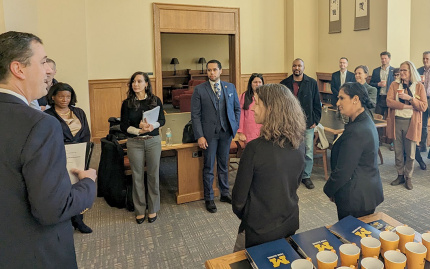About MEDC
The Michigan Education Data Center is one of four partners that make up the Michigan Education Research Institute. The partnership is a collaboration between U-M, Michigan State University, Michigan Department of Education (MDE), and the Center for Educational Performance and Information (CEPI), founded with the goal of supporting researchers to apply for and use Michigan’s education data to answer critical policy and program evaluation questions.
What we do
MEDC is a secure data clearinghouse that includes 19 different datasets tracking school enrollment, funding, assessments, coursework, graduation, and disciplinary records. Among the most comprehensive and unique databases are those reflecting postsecondary and early childhood information.
How we work
Michigan Education Data Center is committed to supporting researchers interested in using the State’s longitudinal data system. Our staff provide feedback and information in the application development stage, assisting researchers in matching their research interests to the State’s strategic priorities and understanding the data available. We work with other MERI partners to enhance data available to researchers and develop the Institute’s research agenda.









